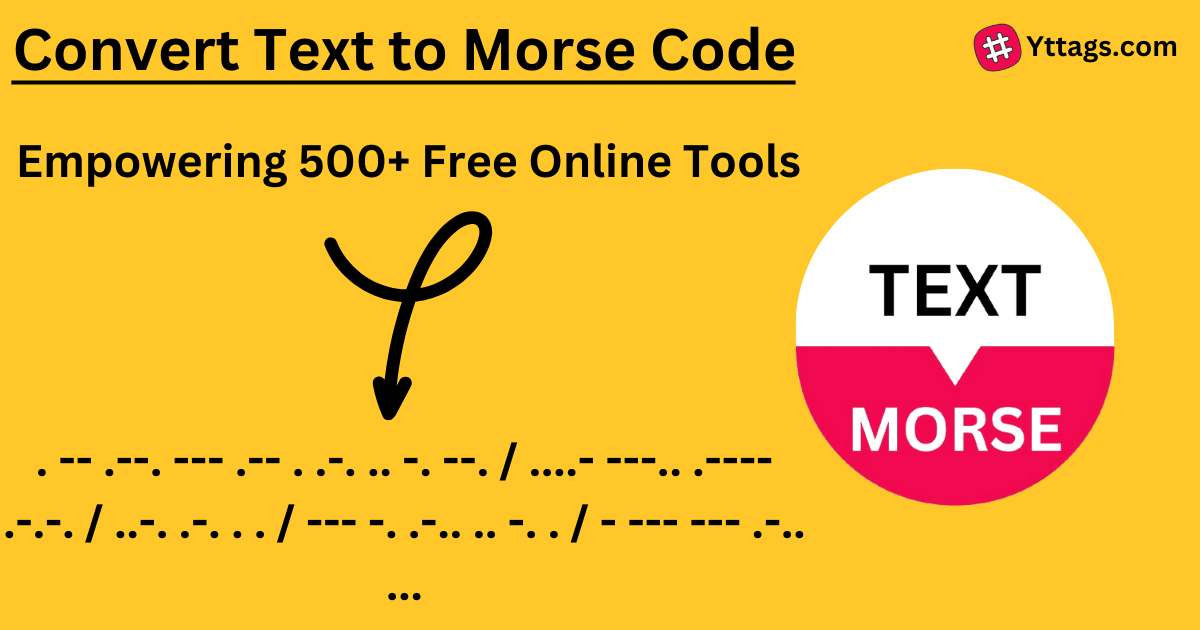Convert Text to Morse Code
The translator can translate between Morse code and Latin, Hebrew, Arabic and Cyrillic alphabets. Our morse code translator converts standard text to morse code and morse code to plain text.
Mode:
Morse code to text
Text to morse code
Translation
If you use this great tool then please comment and/or like this page.
Average Rating: Tool Views: 377
Average Rating: Tool Views: 377
Subscribe for Latest Tools
How to use this Convert Text to Morse Code Tool?
How to use Yttags's Convert Text to Morse Code?
- Step 1: Select the Tool

- Step 2: Enter The Following Options And Check Your Convert Text to Morse Code Result

Morse characters
| - | Dash |
| . | Dot |
| Space | Letter separator |
| / | Word separator |
| # | Untranslatable character |
If you want to link to Text To Morse Code page, please use the codes provided below!

FAQs for Convert Text to Morse Code
What is a Convert Text to Morse Code?
A Convert Text to Morse Code tool is a program or online service that transforms alphanumeric text into Morse code, a series of dots and dashes used for communication via telegraphy.
What is the purpose of Morse code?
Samuel Morse developed the code in the 1830's to send messages through the telegraph machine.
Can Morse code be translated?
If you have the loosest grasp of Morse Code, you probably know it as a high-pitched beeping sound, which corresponds to letters, which then can be translated into human language. And yes, that's pretty much it.
What does Morse code use to transmit messages?
Morse code uses short and long signals, called dots and dashes, to represent letters and numbers. Samuel Morse, an American scientist, helped developed it to send messages over long distances using wires, radios, sound, or light. Messages are sent by tapping, drumming, buzzing, clicking, or flashing light.
How is Morse code transferred?
Morse code is a method used in telecommunication to encode text characters as standardized sequences of two different signal durations, called dots and dashes, or dits and dahs. Morse code is named after Samuel Morse, one of the early developers of the system adopted for electrical telegraphy.